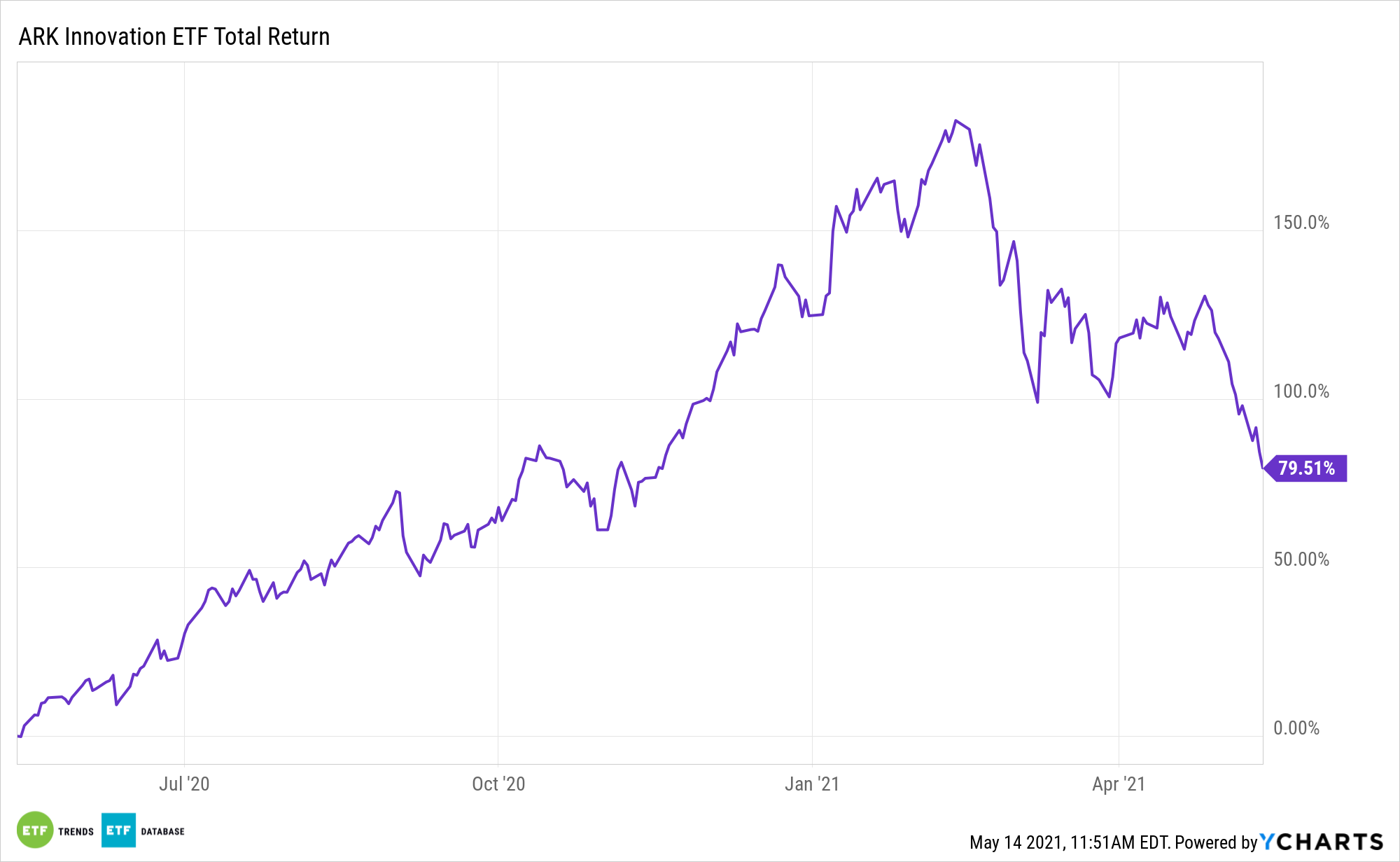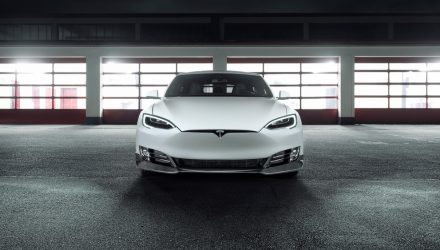The ARK Innovation ETF (NYSEArca: ARKK) has taken its share of lumps this year as growth stocks took a back seat, but the largest active exchange traded fund remains one of the premier avenues for electric vehicle (EV) exposure.
That also means ARKK has credibility as a sustainable investing option, confirming investors don’t need to focus on funds overtly extolling environmental virtue to capitalize on sustainability. In fact, EVs are one of the best ways to bring about positive environmental change.
“Thanks to the cost declines in lithium-ion batteries as well as advances in artificial intelligence, electric vehicles are likely to transition from niche to mainstream products,” according to ARK. “According to ARK’s research, the sticker price of an electric vehicle (EV) with 350 miles in range will be lower than that of the median gas-powered new car in the US. Already, EVs are superior to gas-powered cars as measured by performance, maintenance, safety, and operating costs. Given lower EV sticker prices, we believe only consumers with specialized needs or preferences will choose gas-powered vehicles.”
Transportation Sustainability
Transportation is the single largest source of oil demand, indicating rising adoption of EVs will be a significant contributor to improved environmental sustainability.
“BP projects that cars and trucks will consume more than 40 million barrels of oil per day through 2030,” notes ARK. “ARK expects the adoption of EVs to reduce 2030 oil demand by approximately 10 million barrels per day, as shown below. Because commodity prices are determined at the margin, this outlook does not bode well for oil prices.”
Another positive is that ARKK’s EV exposure isn’t the only card it can play when it comes to sustainability. With it’s long-running reputation for accessing futuristic concepts, ARKK offers investors other avenues toward sustainability while maintaining a disruptive growth profile. Robotaxis are one example.
“Autonomous electric robotaxis could provide a more attractive choice. According to ARK’s research, autonomous robotaxis are likely to price profitably at roughly $0.25 per mile, 60% below the amortized cost of a personal vehicle,” adds ARK. “Robotaxis could offer the same point-to-point mobility as the existing gas-powered vehicle fleet with fewer accidents and more convenience. Consumers will not have to prepay for transportation or pay for parking.”

For more on disruptive technologies, visit our Disruptive Technology Channel.
The opinions and forecasts expressed herein are solely those of Tom Lydon, and may not actually come to pass. Information on this site should not be used or construed as an offer to sell, a solicitation of an offer to buy, or a recommendation for any product.

